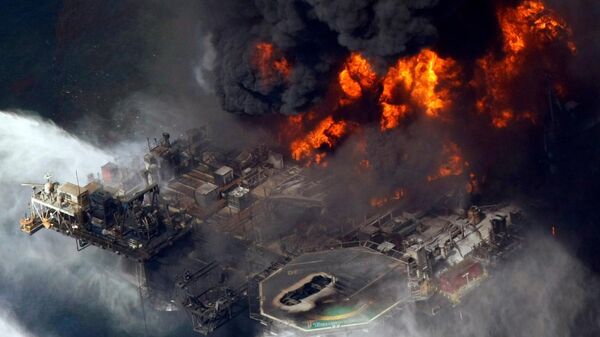Among other things, Sandler spoke with environmental activist Antonia Juhasz about British Petroleum's (BP) settlement with all remaining civil claims arising from the 2010 Deepwater Horizon explosion in the Gulf of Mexico.
The US Justice Department announced on July 2 that energy giant BP reached an agreement with several US states and hundreds of local governments affected by the 2010 Deepwater Horizon explosion that killed 11 men and led to the largest offshore oil spill in history.
Well, it sounds like a lot of money at first glance. However, Juhasz, who is a former energy analyst, said BP "got off cheaply."
"This amount of money doesn't address the whole impact of the world's largest offshore drilling spill… $18.7 billion is just a drop in the bucket for what BP should have been held accountable for," Juhasz argued.
The amount of the settlement doesn't meet BP's legal obligations, as well as the cost necessary to restore environment of the Gulf, which BP is required to do under the Oil Pollution Act. And most importantly, $18.7 billion is the small fine to dissuade other oil companies from behaving in similar negligent fashion, Juhasz told BradCast show.
On April 20, 2010 a gas release and subsequent explosion at the Deepwater Horizon oil rig working on BP's Macondo project in the Gulf of Mexico caused the rig to sink, killing 11 people and leaking oil and gas onto the ocean floor about 42 miles [68 km] off the coast of Louisiana.
The BP pipe at the source of the leak was capped on July 15, 87 days later, after an estimated 3.19 million barrels of oil had leaked into the sea, producing an oil spill covering as much as 16,000 square miles [41,424 square kilometers], an area about twice the size of the state of New Jersey.


